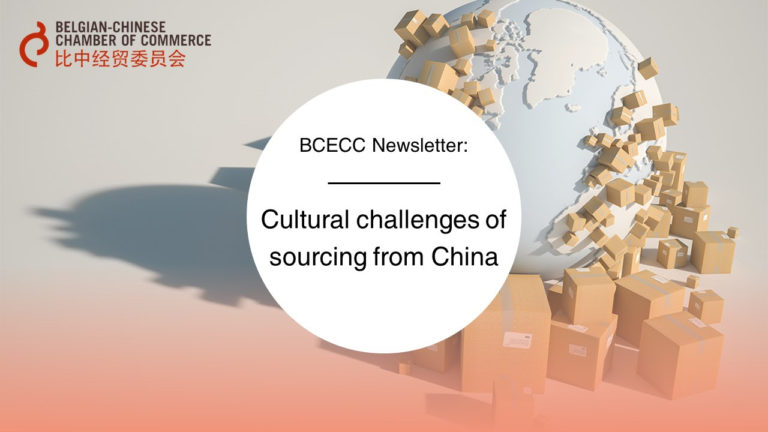In the first article of this series, we looked at ways to find suitable suppliers in China. In this article, we will illustrate how cultural differences may impact your sourcing business. Although most Chinese suppliers have experience in dealing with foreign buyers, this doesn’t mean that there aren’t any cultural differences while sourcing from China.
Building trust
A successful and sustainable business with Chinese suppliers can only work if you take sufficient time to build the relationship. Despite today’s communication possibilities (videocalls, WeChat, etc), it remains impossible to manage your China operations from a distance. You need to regularly evaluate the cooperation and visit your suppliers at least once per year. In China, a business relationship is established on a personal level and face-to-face contact is required for exchange of crucial information and building trust.
It is advisable to sign a supply agreement with your supplier, in English and in Chinese (Chinese is the only official language in Mainland China). This will formalize the relationship and help to protect your intellectual properties. Don’t be surprised that Chinese business partners start questioning certain clauses after signing the agreement. A contract in China is as important as in the west, but you should also work on your relationship.
Communication
Although most suppliers have English-speaking staff, very often there still are a lot of communication issues, leading to misunderstandings and problems. Chinese people tend to communicate indirectly and are afraid to lose face. Hence, don’t expect that, if there is a problem, they will contact you spontaneously. In contrast, you need to proactively follow up and keep in touch with your suppliers regularly. Or in other words, in China sourcing business it is ‘no news = bad news’ instead of ‘no news = good news’.
When talking about communication and China, WeChat is an indispensable communication tool. All your Chinese suppliers prefer to use WeChat above e-mail. It’s not an option to do without WeChat when you communicate with Chinese suppliers. It will also be a crucial asset when you travel to China, for example for making payments, booking a taxi, etc.
Quality?
Chinese suppliers may have a different quality perception than you have. Therefore, it is important that you clearly communicate the quality criteria which you expect from your supplier. When buying components or (semi-finished) products from China, make sure to prepare a detailed technical file, which includes all specifications and information. Many quality problems are caused by incomplete quality specifications and poor instructions from the buyer’s side, rather than bad performance by the Chinese supplier.
Don’t expect that good samples also guarantee a constant flow of high-quality supply. Constant quality requires constant monitoring. Even if the quality of the samples and the first container are satisfactory, this doesn’t guarantee that the next shipment will also be OK. It’s important that you do a quality inspection of the goods before they are shipped. With the first shipment you may do this yourself, but it’s advisable to work with a sourcing agent and professional quality inspectors who are independent and who protect your interests.
Problem solving
The vast majority of Chinese suppliers are honest and want to develop a sustainable and long-term partnership with their foreign customers. Therefore, if there is a problem, they are cooperative to find a solution. However, it is better to avoid any problems in advance and take corrective actions while it is still possible (i.e. before the goods have left China).
Overly ambitious buyers may try forcing their Chinese suppliers to give lower prices and discounts. But be aware, Chinese suppliers may use this as an argument to lower the quality of the products, for example by using cheaper raw materials, lower quality packaging. Moreover, the lead times could be longer or the payment terms less interesting. As in most business relationships, the quest for long-term win-wins offers more benefits in China sourcing than the pursuit of short-term profits.
By the way, if a quality problem is found upon delivery of the goods in Belgium and an agreement is reached for compensation, don’t be surprised that the Chinese supplier will suggest giving a discount on the next order and not a financial compensation. This is related to the difficulty to issue payments in foreign exchange from China without substance.
Payment conditions
Most Chinese suppliers prefer to work with prepayments. Typically, a 30 or 50% deposit is requested, especially in the beginning of the business relationship, with the remainder to be paid upon issuing of the copy bill of lading (so before arrival of the goods in Belgium). It is also possible to work with Letter of Credit, although this is mostly used for larger orders or investment goods. The longer and better your relationship with your Chinese supplier, the more you may be able to negotiate better payment conditions (no prepayments, or even 30 or 60 days payment terms).
In recent years there are also possibilities to pay your Chinese supplier in Chinese currency (RMB). Switching to RMB could result in better prices, as the supplier will have less risk of exchange rate losses.
Avoiding common pitfalls
As already explained in the first article of this series, a good feasibility study, a solid due diligence and efficient follow-up are key to a successful sourcing business. Common pitfalls are for example:
- Working with only one supplier.
- No proper due diligence.
- Insufficient (or no) business contract.
- Absence of supervision.
- Neglecting trademarks or other intellectual properties
- No or insufficient records or product design/Bill of Materials (BOM)
Make sure you know your suppliers well enough, take time to build a good relationship and work with professional sourcing consultants who are independent and trustworthy.
Please contact the Belgian-Chinese Chamber of Commerce (BCECC) in case you need more information.

